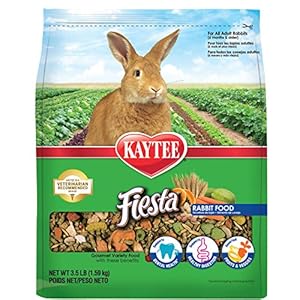
Ismail Samad is not any stranger to hospitality. The East Cleveland, Ohio, native started his first foray into restaurant co-ownership on the age of 23, and in 20 years, he has labored his method by way of ground-breaking restaurant openings and group packages. Working on the intersection of meals and group crystallized a realization for Samad: Black and POC meals programs are in a chokehold. He’s collaborated with among the nation’s foremost meals justice leaders to empower freedom.
His hometown of East Cleveland is now his focus. Whereas 89 p.c of East Cleveland residents are Black, and 40 p.c of them stay in poverty, thousands and thousands in buying {dollars} nonetheless leak into outsiders’ enterprise pursuits. Additional, throughout the small group sit over 500 vacant properties—indicating a ripe alternative for self-sustaining progress.
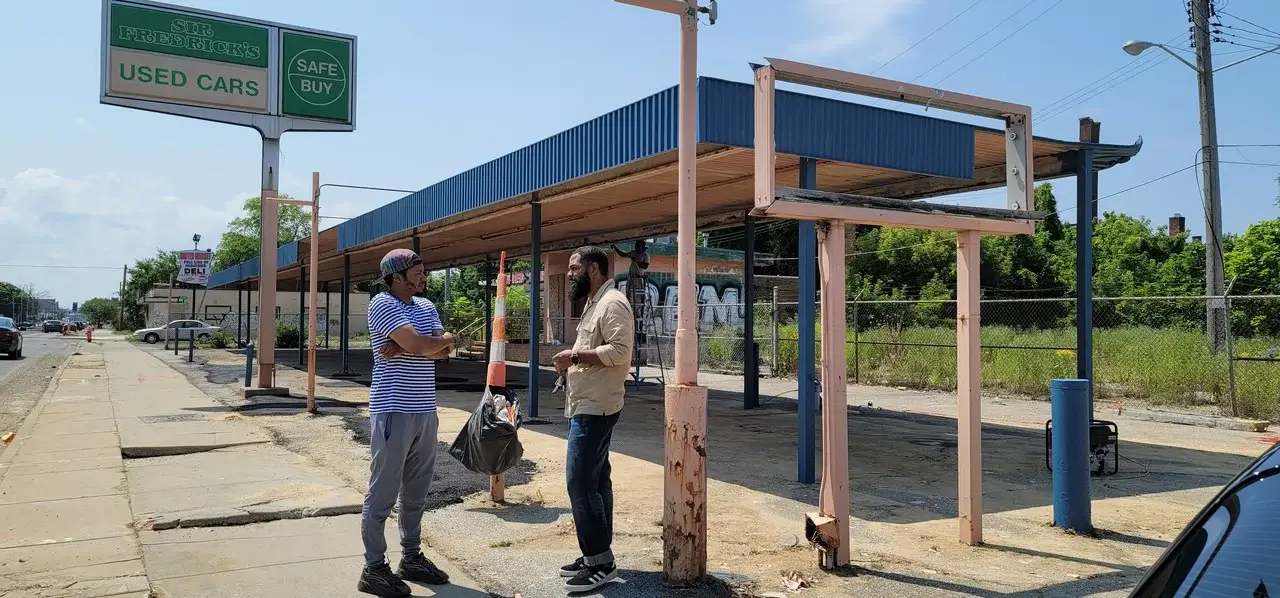

“East Cleveland—it’s three-and-a-half sq. miles. It’s not a neighborhood of Cleveland, it’s its personal municipality. There’s a hearth division, police division, however throughout the metropolis there is no such thing as a grocery retailer, proper? There’s simply no area of gathering that’s an intergenerational area that’s not quick meals or a bar, you realize? For me as a chef from the town, I wish to come and produce some issues that we deserve in our communities,” says Samad. And with that want, Loiter was born.
“Folks want locations to hang around,” says Samad, “and you may’t hand around in our communities with out trying like criminals, so, subsequently, the one people allowed to construct our communities again are people who usually are not present residents. The recipe could be very clear.”
Samad serves as Loiter’s chief fairness officer and co-owns the nonprofit along with his sister Alima Samad—a seasoned enterprise progress marketing consultant—who leads entrepreneurship and organizational improvement. They created Loiter to fill the gaping void of holistic, soul-nourishing Black hospitality areas, among the many few left by a evident lack of improvement assist and antagonistic regulatory atmosphere.
Throughout the challenge’s design part, group members offered enter and research was conducted with the Harvard Legislation Faculty Meals and Legislation Coverage Clinic. They recognized methods for profit-generating, group meals programs in East Cleveland with a watch on “growing the ability and monetary well-being of residents.”
Study Extra
Learn the Report: Meals Sovereignty & Meals Manufacturing in East Cleveland
Alongside these strains, Loiter’s mission is to “confront the consequences of systemic racism and encourage the intentional re-investment wanted to construct profitable community-owned enterprises.”
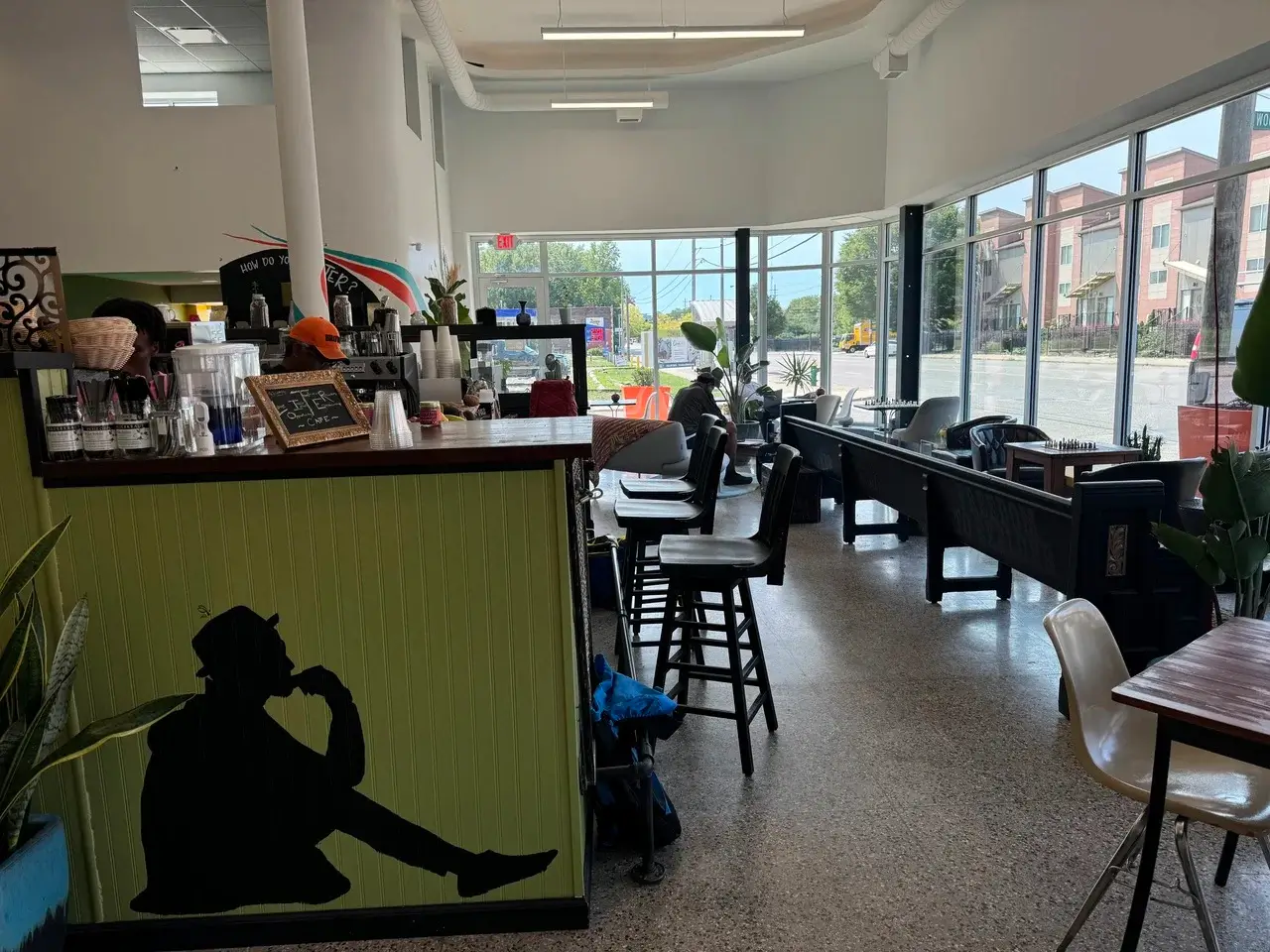

To take action, Loiter powers an ecosystem of companies: a restaurant and micro-market, an affirmative meals firm, and a Black enterprise incubator, amongst others. The group purchases from, employs, homes, and empowers Black and BIPOC makers—primarily from the East Cleveland space. Every element of the Loiter mannequin nourishes the group. The guts of the operation is a high-quality meals hub and cafe. The cafe sources baked items from native, mom-n-pop operations and BIPOC East Cleveland residents.
Espresso, tea, honey, and chocolate are both grown, processed, or produced by native Black companies, POC collaboratives, or city farms. Even the ice cream is regionally Black-owned—by Ibrahim Colvin of Colvin’s Sweet Cremery. It options cultural flavors comparable to candy potato pie ice cream (sourcing pie from Shareef’s Pie in the Sky), a vanilla “bean pie” taste, and a purple velvet cake taste.
Constructing Black Management of Their Meals System
To foster a self-controlled meals system, Loiter works by way of Wake Robin—its affirmative fermented meals firm acquired in 2013—to buy from native Black growers. “They’re rising our tea bought from a Black lady who can also be roasting our espresso. The chocolate [for Loiter’s Chocolate Rebellion] comes from the Cross Atlantic Chocolate Collective,” explains Samad. It additionally plans a gap of the Chocolate Farmhouse, slated for this winter.
This strategy isn’t nearly sustainability, however self-determination, says Samad. “So, you can also make an argument [that] probably the most sustainable cafe is within the poorest metropolis within the state. How did that occur? Nicely, as a result of we rallied behind injustice and created environmental justice options which are led by us.”
“The answer I want to see is that we band collectively and create the narrative vital for our folks of coloration. We aren’t right here to search for somebody to save lots of us. We’re right here to save lots of one another.” — Mikki Smith of African Land Collective
In the end, Loiter creates a self-sufficient cycle of constructing and scaling small companies—which creates Important Avenue-level retail retailers in an incubator style—from startup to grand opening. Loiter helps them scale and develop into their very own storefronts, with companies comparable to enterprise advising and technical help.
Loiter’s identify is multi-layered: which means Love-Alternative-Funding-Transformation-Fairness-Reparations/Restitutions-Now(!). It represents the self-described ”freedom to discover with out concern, collect collectively, and reclaim our area,” and challenges notions of loitering—labeled as an offense when an individual lingers in an space for no obvious cause—traditionally concentrating on the Black group.
Samad categorizes loitering legal guidelines because the criminalization of harmless social conduct, which demonizes the most sedate forms of Black relaxation—associating and consuming collectively. To the Samad siblings, “loitering” merely means dwelling in a way of neighborhood security and belonging, and that’s what their group represents, too.
Learn Extra
Dwelling Whereas Black and the Criminalization of Blackness from Vox.
“Folks want locations to hang around,” says Samad, “and you may’t hand around in our communities with out trying like criminals, so, subsequently, the one people allowed to construct our communities again are people who usually are not present residents. The recipe could be very clear.”
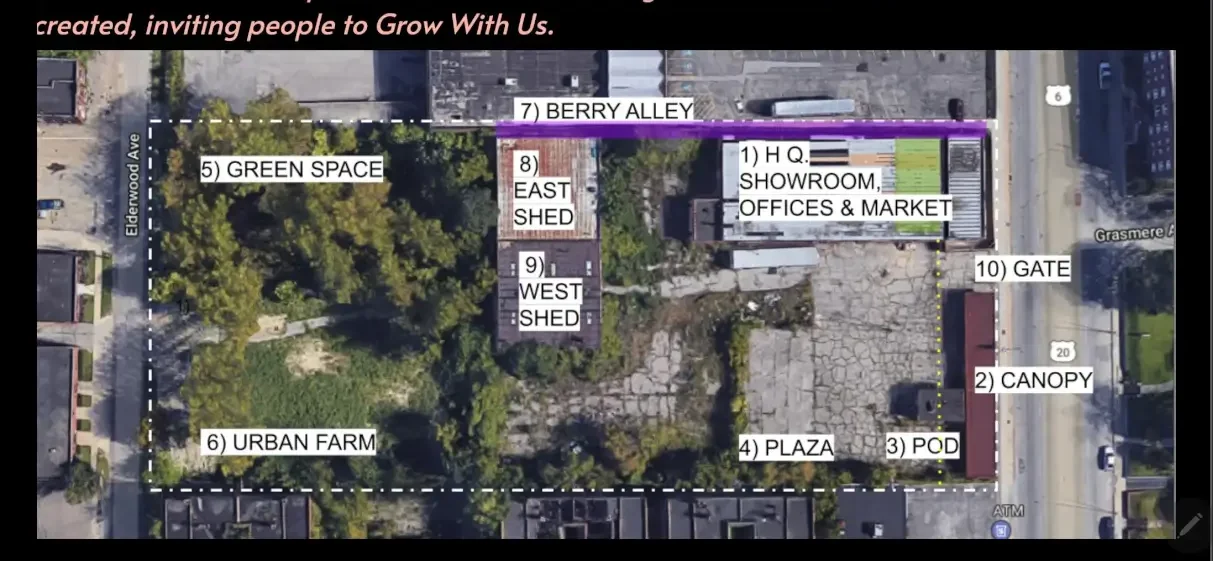

Regardless of the clear group assist, Loiter’s emergence wasn’t with out strife. The brand new cafe and market are housed in a renovated constructing that’s a part of the bigger Circle East improvement in East Cleveland—a five-phase, 30-acre, and estimated $122-million business improvement challenge owned by Cuyahoga Land Financial institution.
The land financial institution leveraged the Samads’ decades-long, sterling reputations as space natives to win resident approval, and purchased thousands and thousands in funding as a result of its affiliation with the event. However, in late spring of 2024, Loiter had its signal eliminated and was unceremoniously locked out of its area by Cuyahoga Land Financial institution, which supposed to terminate Loiter’s lease.
Cuyahoga Land Financial institution claims Loiter violated their settlement by putting in generally floor-bolted business furnishings in the course of the cafe buildout part previous to opening, claimed points with electrical energy, requested Loiter change its identify to higher align with the event’s “imaginative and prescient,” and opposed signage set up.
To the group, this had all of the hallmarks of a bad-faith effort to make use of the Samads’ clout and promise of Black-led group rehabilitation to safe thousands and thousands in funding, solely to show its again on Loiter as soon as the Samads had been not wanted.
Regardless of Cuyahoga Land Financial institution’s efforts to evict Loiter and flip the property, the Samads weren’t cowed. If something, the battle underscored the group’s ongoing want for an area like Loiter.
And the Samads put their cash the place their intentions are. They invested greater than $150,000 and goal to stay as a fixture, creating citizen entrepreneurship alternatives, offering monetary training and mutual assist. To guard their funding, they fought again within the courts.
Loiter filed go well with towards Cuyahoga Land Financial institution on June 20, claiming delays on the developer’s half with operational fundamentals comparable to electrical entry and water sub-metering. The developer countersued, and the authorized battle continues. On July 11, Loiter was granted an injunction, which allowed it to efficiently open within the area and ordered Cuyahoga Land Financial institution to interchange its signage.
Samad was perplexed and disillusioned that issues devolved to an antagonistic authorized battle as an alternative of respectful and constructive face-to-face communication with Cuyahoga Land Financial institution.
“Though we’re open, we nonetheless need to cope with the realities of the group feeling like our wants and our voices weren’t heard, and that we needed to undergo the method in a authorized system as an alternative of having the ability to speak with each other—to have an actual dialog about how we will transfer ahead, proper? What can we do collectively? So, we nonetheless haven’t had that dialog with them. So, we’re open. However we nonetheless need to cope with that dialog round what does this all imply?”
However, Loiter and its group stakeholders are optimistic that the pending sale of the renovated property to a biotech firm holds a recent begin to collaborate with new possession. The possible patrons plan important property investments, together with the development of a laboratory and co-working area.
“We’re trying ahead to seeing who the brand new purchaser is, and if we will restart the dialog with the brand new proprietor to see how group voices could be current in improvement efforts from folks prospecting within the metropolis,” says Samad.
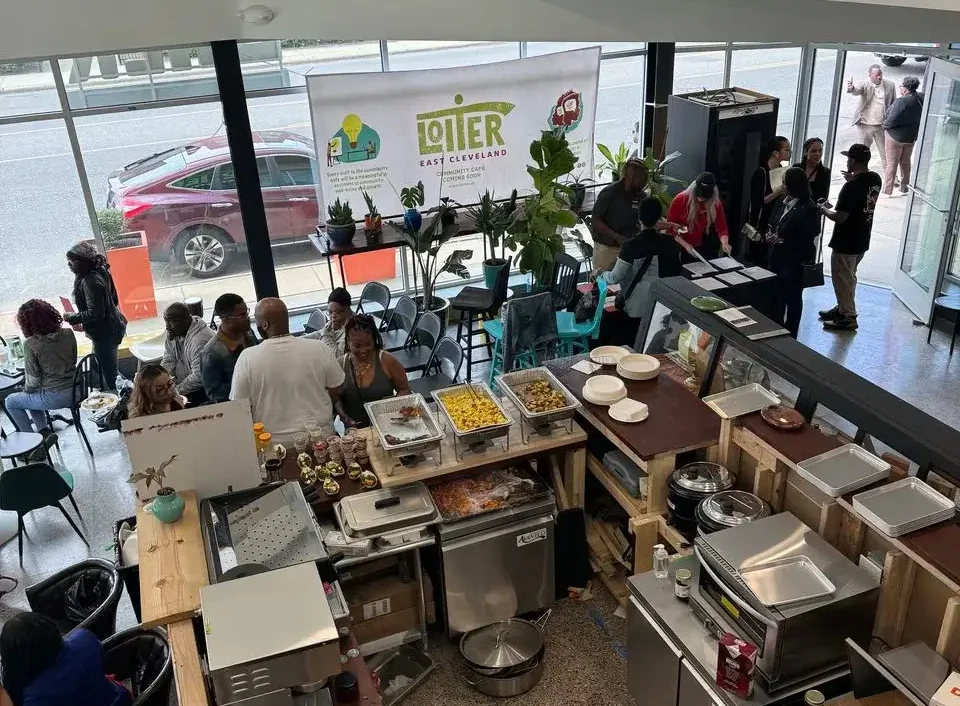

Regardless of the setbacks, Loiter is now absolutely operational. That they had their smooth opening by August 10, throughout the court-mandated deadline. Their grand opening was held September 28, and they’re open common hours Tuesday to Saturday 8am to 6pm. “We’re enthusiastic about our ecosystem having a platform, being a important area within the metropolis. And loads of our manufacturers and growers and producers are actually excited to promote their produce, and have it go into merchandise being made all through the entire system and having the cafe that includes them. So, we’re excited to point out what the collective is attempting to do,” says Samad.
The Samads’ dream for Loiter expands past the constructing partitions to further initiatives. “It’s the entire built-in factor,” says Samad. “You’ll be able to’t construct a group simply by saying you want a grocery retailer, proper? You’ll be able to’t repair these insurance policies that arrange meals deserts and meals swamps and create apartheid realities simply by addressing meals entry.You need to repair the environmental wants, too.”
So, the Samads got down to tackle poverty. In 2021, they bought a 3.5-acre long-abandoned automotive lot and created the Euclid Avenue Farmer’s Market, a bustling middle of produce stands, meals vehicles, and pop-up markets. The farmers and distributors now align their capability with Loiter’s cafe and market—offering them constant and secure earnings by way of that retail entry.
The Political and Financial Local weather
Entry is absolutely the difficulty. Jennifer Lumpkin, an environmental justice advocate and founding father of My Grow Connect, works with meals coverage and is a Loiter farmers market provider. Lumpkin spoke concerning the political local weather through which group members stay.
“One should perceive the political ineptitude that exists in East Cleveland, exacerbated by the shortage of economic sources, means and methods to remediate the ills of meals apartheid, environmental and social injustice,” she says.
Lumpkin and different meals justice leaders keep that important consideration to systemic points undermining Black possession of their very own client financial system is lengthy overdue.
“Land acquisition, stewardship, or lease in any of Cuyahoga county’s vacant or deserted properties are unavailable and owned by the municipality. Or the method by which to use, meet the factors, and really personal land is reserved for a choose and small minority inside a minority,” says Lumpkin.
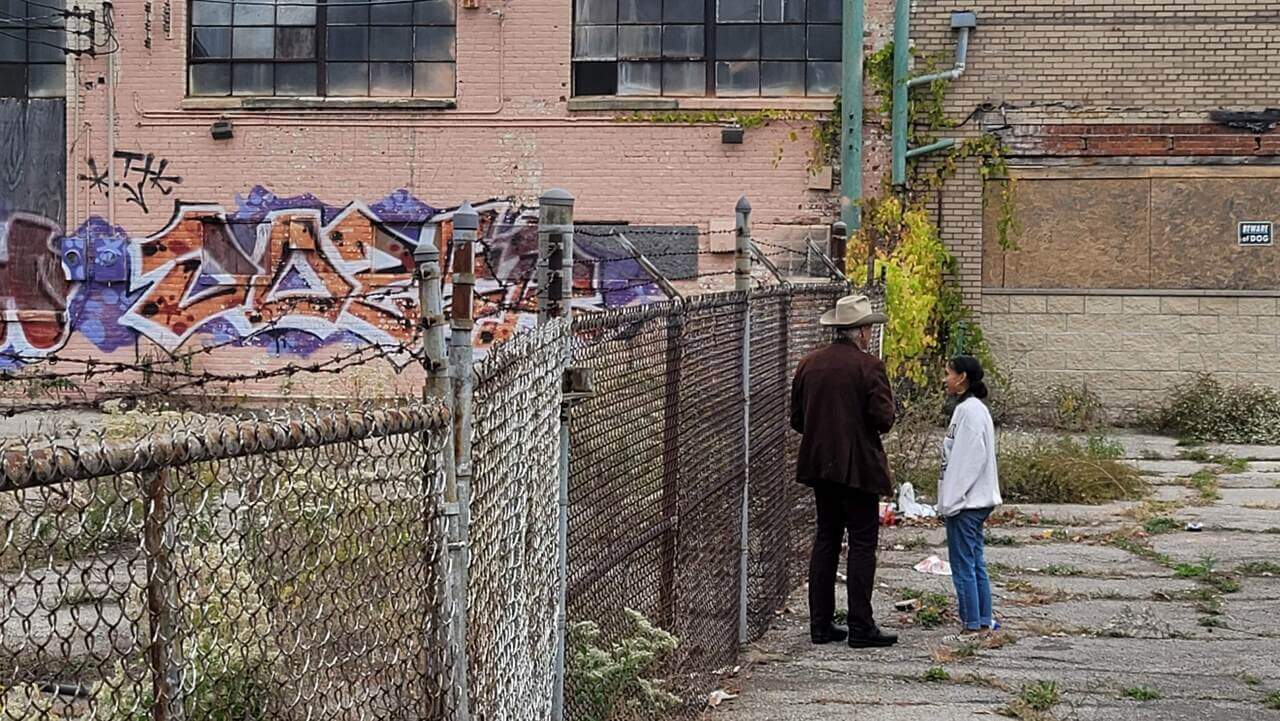

An analogous sentiment is voiced by Mikki Smith, a farmer, Cleveland native, and the manager director of Little Africa Food Co-op, a collaboration of city farms addressing meals insecurity on the group degree.
“We’re those which have probably the most as pertains to shopping for energy,” says Smith. “However, we’ve the least quantity of possession in our group. And that should cease.”
Smith understands Loiter’s targets, and he or she sees meals co-operatives with Black possession as a direct struggle towards the monopolization of their meals system limiting Black financial progress. Redline zoning practices and a litany of civic limitations to what city farms could develop, how they will develop and fertilize it, and who’s allowed to take action produce an general micro-management impact that harkens backward to sharecropper-era mindsets.
Smith cites packages such because the Summer season Sprout lessons and Gardening for Dollars packages—which restricts entry and dictates seeds offered. They both prohibit produce gross sales or require a gross sales contract and downpayment—limiting residents to both hobbyist gardening or government-controlled foodways, whereas stifling Black progress and agricultural variety.
In distinction, Loiter plugs ultra-accessibility into every initiative. Some producers are even supplied housing or residence enchancment potential by way of Loiter Sanctuary Houses, incomes residents further earnings from agritourism and short-term leases.
Motivation and Momentum
Regardless of the authorized setbacks, systemic ills, and harsh political panorama, Samad stays unwaveringly obsessed with Loiter’s mission, and he’s fast to focus on the contributions of different group members, not simply his personal. When requested about his childhood in East Cleveland, he was effusive concerning the neighborhood satisfaction that evokes them, “We had a thriving group that was predominantly Black. Rising up, it was only a stunning place to be. After which, we went by way of the identical predictable stuff. That’s what occurs while you don’t put sources and love into areas, and while you enact unprincipled insurance policies and ignore the wants of a group. However, that mentioned, it was a ravishing place to exist. As a result of there have been loads of totally different communities dedicated to household and group.”
Amongst their exceptional traits is their knack for gathering allies and quietly disrupting status-quo meals violence—the system blithely segregating, under-educating, bankrupting, sickening and killing communities of coloration. Though Loiter sits amid deeply entrenched bias, the Samads middle options—therapeutic by way of a thriving meals financial system and selling city-wide coverage adjustments, comparable to legalizing composting.
Samad sees Loiter as one step in an overarching technique of larger resident company. “Naturally, what we’d like is funding in our Important Streets and in us, and alternative to truly personal the tradition individuals are transferring to get pleasure from, proper? We don’t need to have a dominant tradition develop our neighborhoods.”
To ensure that residents to emerge as empowered group leaders, the latent expertise of youthful generations requires constructive steering and training additionally.


“Our youngsters want stuff to do, proper? Well being and wellness go hand in hand. So, we do culinary drugs workshops and train totally different sports activities. Like we did a tennis camp. We did a horseback driving camp a few summers in the past. This summer season, we had Pilates,” says Samad.
That is very important to the “EC satisfaction” that characterised the Samad’s youth, when he recollects neighborhood group clean-ups, assist by way of challenges, and wonderful training.
Samad reminisced on the group’s stunning magnet elementary college. However by center college, his dad and mom pulled them out for homeschooling, as the college system, parks and recreation, and programming noticed growing divestment to greater tax bracket communities. Their group was drained dry. However this was a microcosm of the nationwide phenomenon of the time.
These shockwaves resounded countrywide because the Reagan Administration weaponized the federal finances for political agendas, slashing training and infrastructure budgets with an aggressive stance towards “federalism” in public advantages comparable to training funding, amid vocal bipartisan Congressional resistance. The administration proselytized its battle on medication and elevated protection spending. However its home tranquility divestment in the end destabilized the thriving small communities most susceptible to federal finances cuts.
In opposition to this backdrop, East Cleveland felt the sharp wound of federal influence and concrete flight after lackluster state and municipal funding. But, an embedded core group endured to eke out happiness. They shoveled one another’s snow and picked up each other’s trash with a way of mutual belonging. This caring and self-determination is what Loiter hopes to embody.
Mikki Smith of African Land Collective agrees. “The answer I want to see is that we band collectively and create the narrative vital for our folks of coloration. We aren’t right here to search for somebody to save lots of us. We’re right here to save lots of one another.”
Samad summarizes it greatest: “We’re attempting to place forth a method that features group voice with our property and celebrates our tradition in areas which are owned by us collaboratively, and that might be constructing possession, technique possession, IP, narratives. So we’ve all of it inside our communities. We simply want the chance to let that stuff shine.”
Trending Merchandise


